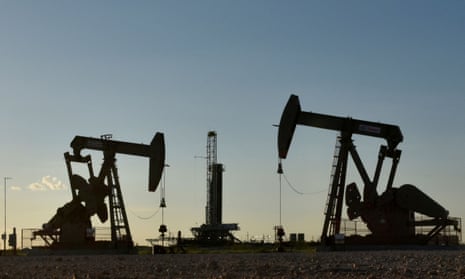The huge differences in the voting records of MPs on climate issues, revealed in the Guardian’s rankings today, should immediately disabuse anyone of the notion that Britain’s elected politicians are united – apart from a handful of contrarians – in their efforts to limit global heating.
True, a consensus exists in the UK and most of Europe with regard to the necessity of cutting emissions. That is in stark contrast to countries such as the US and Australia, where leading politicians deny climate science and promote fossil fuel extraction. But acceptance of the evidence that shows the next decade will be crucial for efforts to restrict global temperature rises to 1.5C is the basis for action, not a substitute for it. Politicians should be judged on what they do. And our research shows that the voting record of most Conservative MPs over the past decade, on 16 parliamentary divisions ranging from fracking to renewable energy subsidies and vehicle emissions, is abysmal. They are five times more likely to vote against climate measures than MPs from other parties, with the prime minister, Boris Johnson, among several dozen MPs to get the lowest possible score of zero.
Conservatives are also far more likely than MPs from other parties to have accepted salaries, donations trips or gifts from oil companies, petrostates, airports or supporters of climate contrarian thinktanks. Between 2008 and 2018, for example, 32 Conservative MPs accepted free trips to Saudi Arabia, along with eight MPs from other parties. The industry minister, Nadhim Zahawi, received more than £1m from fossil fuel companies – all of it declared and legitimate – and is one of several current and former ministers to have been paid second salaries by oil companies, or firms with substantial interests in the industry. A total of £5m in such payments was declared by MPs over 10 years.
The Guardian is not suggesting MPs were paid for their votes, which is illegal. Our research forms part of a special investigation, The polluters, which has explored the contribution of major carbon-emitting businesses to the climate emergency. The point is to highlight the way these firms have sought to shape public opinion and regulatory structures both through direct lobbying and less directly, such as through funding thinktanks or groups active on social media.
Environmental campaigners in the US, UK and elsewhere have worked for years to highlight the enormous power wielded by giant oil and gas companies – and to show how this power has been used to advance their political and economic interests, particularly via the colossal sums pumped into US elections. In the late 1990s, American oil interests embarked on a global campaign to undermine climate science and shift public opinion – a campaign that had much in common with that waged in the 1960s by tobacco companies, aimed at undermining the research revealing the dangers of smoking.
Public discussion of the climate emergency, including in the media, is often focused on individual consumer choices, such as whether to give up meat, on national governmental decisions, in setting laws and targets, or on the all-important transnational efforts governed by the UN’s framework convention on climate change. All these approaches to our increasingly dangerous global situation are valid and important.
But corporations have played a critical role in shaping and constraining the choices that all these actors have made. And while some now promote renewable projects, they continue to expand their fossil fuel operations in the face of overwhelming evidence that their actions will drive ecosystem collapse and make much of the planet uninhabitable. Just 20 companies between them have contributed 35% of all energy-related carbon dioxide and methane, totalling 480bn tonnes of carbon dioxide equivalent (GtCO2e) since 1965. Four businesses – Chevron, Exxon, BP and Shell – are behind more than 10% on their own, despite industry leaders knowing about the environmental impact of their activities.
It is difficult to confront the full implications of irresponsibility on such a monumental scale. But we, and our politicians, now have no choice but to try.
